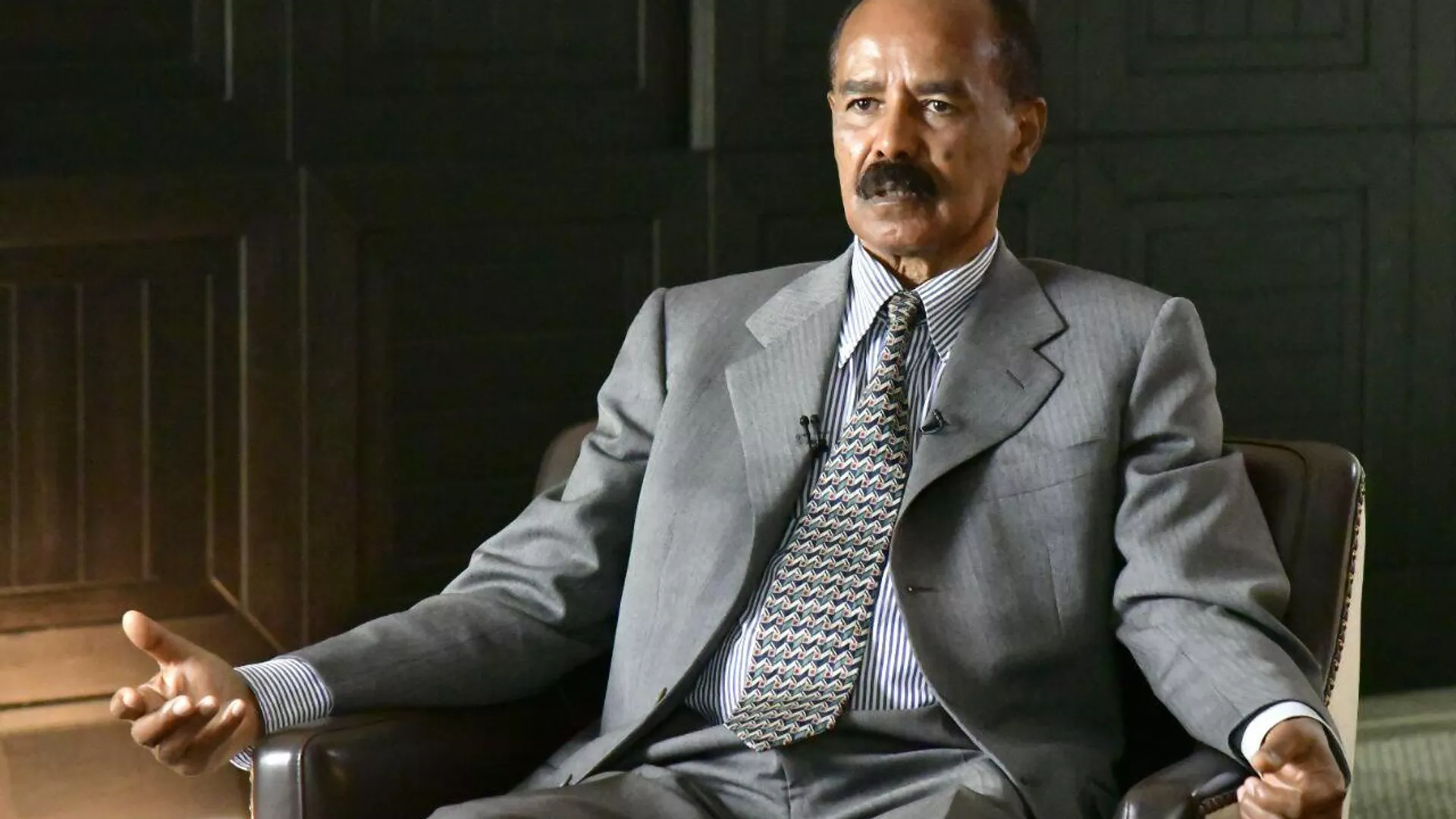Eritrea, a Horn of Africa nation located on the Red Sea coast, became one of five states to vote against the Western-sponsored anti-Russia resolution in the UN General Assembly in March 2022, after the beginning of Moscow's special operation to demilitarize and de-Nazify Ukraine.
Later, the African state resolutely condemned the West's unprecedented sanctions regime weaponized against Russia. So what's behind Eritrea's firm stance?
"This is not because we are doing any favors to the Russian Federation," President Afwerki told Sputnik Africa. "This idea of 'war in Ukraine' or 'war between the Russian Federation and Ukraine' is not true at all. This is a war declared by NATO and Washington against the Russian Federation for the last 30 years. And Russia has a right to defend itself. You can't force or even use force, all sorts of coercion, to subdue nations. This is not acceptable. This is the law of the jungle. We need to get out of this law of the jungle and people will have to be free to live like human beings. Our position was very clear. We are against containment. We are against the domination or hegemony of one nation. We can't accept it. And our support for the Russian Federation against these hegemonic policies was a natural phenomenon or outcome of what we did also."
According to the president, this story actually began immediately after the end of the Cold War and the collapse of the USSR. At the time, the US had its unipolar moment. Washington decided to prolong this moment as long as possible by imposing its control upon the world and dividing it into its spheres of influence. What the US did at the time was not just about expanding its influence, according to the president: Washington resorted to outright containment of other nations. As per Afwerki, this containment policy is akin to a declaration of war.
"It was a declaration of war because there was a concept developed by these guys to contain, contain, contain, contain those who can compete, or at least who can share something in the global system," President Afwerki said. "That was not allowed. And because of the background of the Cold War era, this obsession of containing Russia was there for the last 30 years. It's nothing new. If you are containing one nation not to grow, not to compete, not to be able to make its contributions, then you are declaring war."
Eritrea knows well what Western sanctions mean: it has withstood their pressure for over ten years. Most recently, in November 2021, the US slapped unilateral economic restrictions on the nation's ruling party, armed forces, businesses, institutions and individuals. The Horn of Africa nation was also excluded from the SWIFT (Society for Worldwide Interbank Financial Transactions) system.
Nonetheless, it did not bow down to the West and signaled its support to Russia when the latter was subjected to maximum pressure. Afwerki underscored that Russia's case is part of the West's broader strategy aimed at coercing other nations into submission. Not only big and powerful countries like Russia or China have been subjected to this strategy: virtually every nation that refuses to kneel down to the US "ideology of hegemony" is punished.
"We need a new world order," said President Afwerki. "The need for a new world order is obvious. It's a demand for every people, every nation in the world. We need to get out of this cycle of containment, containment now, containment of Russia, containment of China, containment of Eritrea. Then punishment for this and that. Sanction here, sanction there. It's not a question limited to facing the challenge. Facing the challenge is one thing, but what about beyond the challenge? Beyond facing the challenge? We have to be clear on where we are going. We have to prepare the ground for creating a new environment. That new environment will have to be there for everybody. Justice to prevail. Nations and people should be allowed to progress. (…) I think it's a transitional issue. It's a transition from the last 30 years of a hegemonistic attempt, which has failed, practically, to go to a new order. That new order will have to be an order that comes as a result of consultations. Consultations – bilateral, multilateral, continental. Ultimately, we will arrive at an understanding, and the fundamentals are very clear."
The full interview will published on Sputnik Africa website soon. Stay tuned here.






